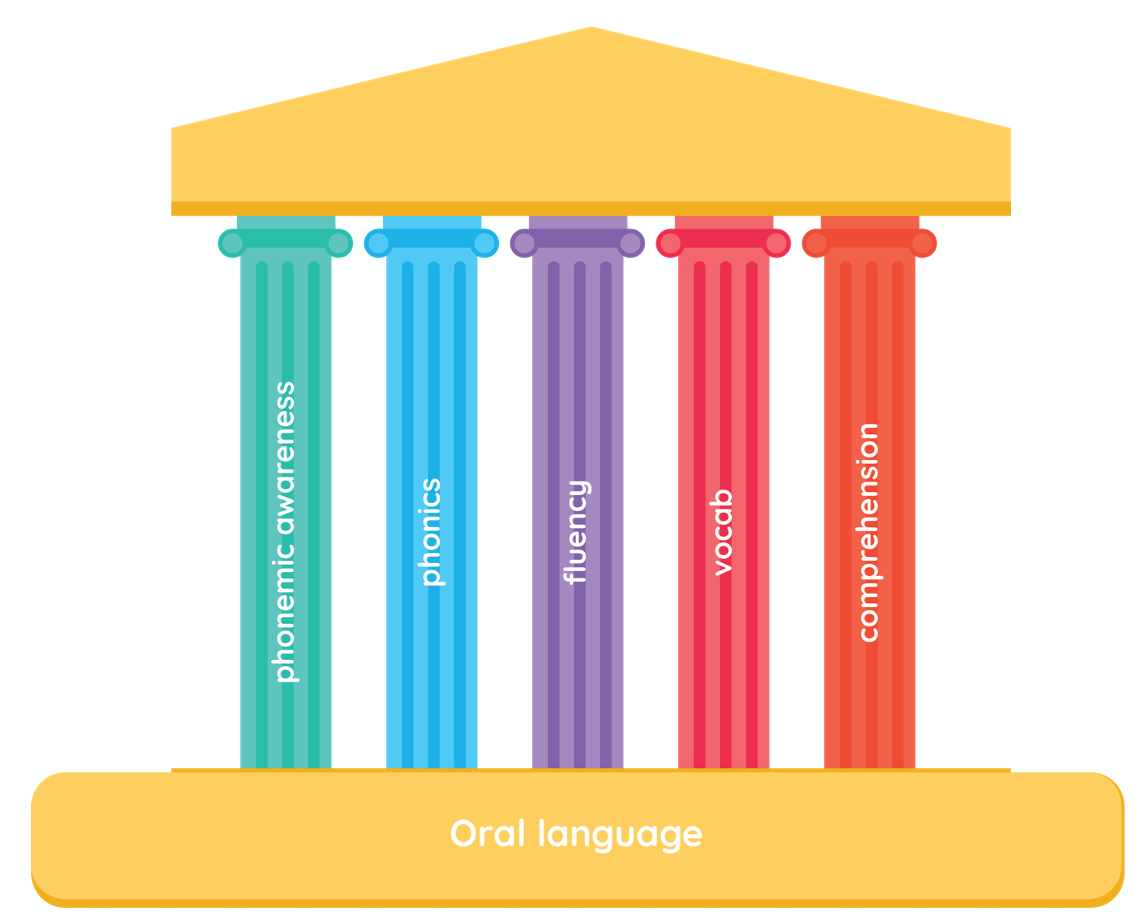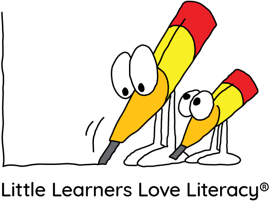The science of reading & Little Learners Love Literacy
At Little Learners Love Literacy we have created our resources from the growing body of scientific evidence now referred to as "the science of reading".
"The science of reading is a vast, interdisciplinary body of scientifically-based research about reading and issues related to reading and writing. This research has been conducted over the last five decades across the world, and it is derived from thousands of studies conducted in multiple languages. The science of reading has culminated in a preponderance of evidence to inform how proficient reading and writing develop; why some have difficulty; and how we can most effectively assess and teach and, therefore, improve student outcomes through prevention of and intervention for reading difficulties." The Reading League, Science of Reading: Defining Guide, 2021


Scientific research for the effective teaching of reading
Researchers Gough and Tumner proposed their model in 1986 - the Simple View of Reading.

It shows that reading can be represented as two co-dependent skill sets – word recognition (decoding) and language (or linguistic) comprehension. Reading is a product of word recognition and language comprehension (0x1=0), and both are required for successful reading. Word recognition skills include phonemic awareness, phonics and fluency.

We highly recommend neuroscientist Stanislas Deheane’s books and YouTube videos summarising his research and evidence on how we read and how we learn.
His work using brain imaging has shown (among other things) how the brain processes letter strings matching them to speech sounds (decoding) – even as adults we do this, but it is so automatic we don’t realise.
In 2000, in the largest, most comprehensive evidenced-based review ever conducted of research on how children learn to read, the USA National Reading Panel (NRP) presented its findings. The specific areas the NRP noted as crucial for reading instruction were phonemic instruction, phonics, fluency, vocabulary, and comprehension. The recommendations were that students must be taught these areas explicitly and systematically.

Recommended reading
- The Snow Report
- Spelfabet Blog
- Shannahan on Literacy
- The Reading League Journal
- Five from Five Blog
- Reading Matters
- Evidence Snacks
- Emily Hanford's Sold a Story
- Ollie Lovell Blog
- AERO
We highly recommend Kerry Hempenstall's excellent article - Read About It: Scientific Evidence for Effective Teaching of Reading. It is a must read for everyone interested in how and why to teach reading. It is extremely comprehensive and easy to read.
For further reading please look at the following key papers: • (2000) National Reading Panel • (2005) The National Inquiry into Teaching of Literacy • (2006) The Rose Report • (2016) Read about it • (2016) Why Phonics • (2018) Ending the Reading Wars
Effective teaching of reading and spelling with little Learners Love Literacy
Little Learners Love Literacy® explicitly teaches and practises phonemes (speech sounds), graphemes (print) and vocabulary (meaning) to build neural connections in the brain that are needed for automatic reading. Our program addresses:
- Phonemic awareness (read more)
- Phonics (read more)
- Fluency (read more)
- Vocabulary and comprehension (read more)
- Explicit and systematic teaching - revise, teach, practise, apply and assess (read more)
- Writing - handwriting and spelling (read more)


In 2016 we conducted two formative assessments in order to see whether Little Learners Love Literacy® is an effective whole classroom approach. At Westgarth Primary 75% of Prep students were reading at LLLL Stage 7 (assessed on unseen text without illustrations). We loved the way the students knew exactly which phonemes and graphemes they had learnt and we also were thrilled they could discuss the different sounds the grapheme 'y' represents at the end of one-syllable and two-syllable words. Read about impact at other schools on our Case Studies page.
Read more: Case studiesNational and international assessments indicate that about one quarter of Australian students achieve literacy results at or below the minimum standards. We aim to get all children reading and spelling with confidence by using a research-based approach. We are passionate about literacy research and endeavour to use the evidence to inform all our practice and resources.
